#Spanish Civil War
Explore tagged Tumblr posts
Text
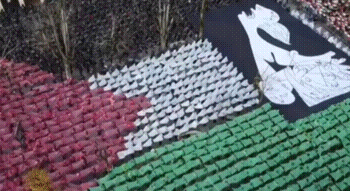
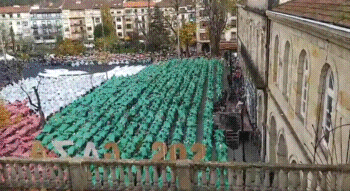
December 8, 2023 - Hundreds of people gathered in Guernica, Basque Country, to form a human flag in solidarity with the Palestinian people, as air raid sirens filled the air. The town of Guernica became symbol and a rallying cry against war crimes and the slaughter of civillians after German and Italian planes bombed the town for Franco's fascists in 1937, during the Spanish civil war, killing hundreds of innocent civillians. [video]
#guernica#gernika#basque country#euskal herria#solidarity#free palestine#flag#palestine#palestinian flag#anti-war#occupation#apartheid#spanish civil war#spain#antifa#antifascism#antifascist action#2023#gif#gaza
2K notes
·
View notes
Text
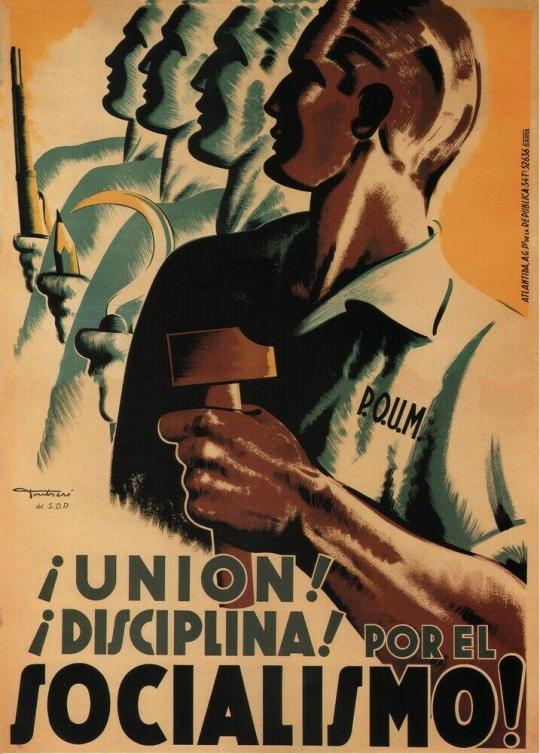
Union! Discipline! For Socialism! (1936)
247 notes
·
View notes
Text
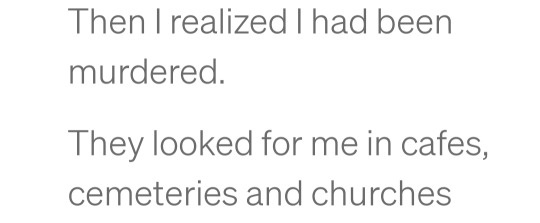
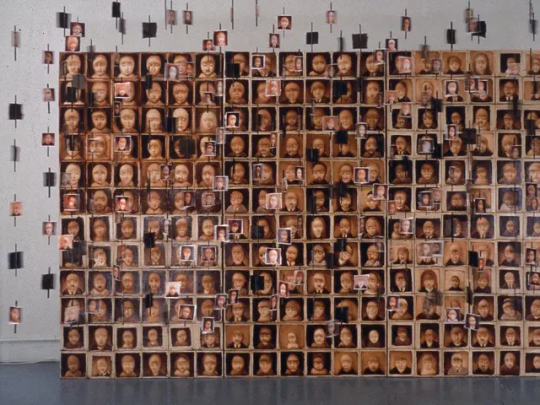

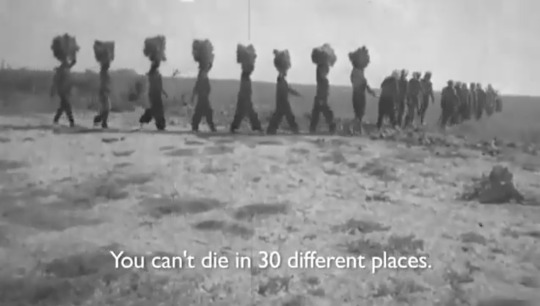
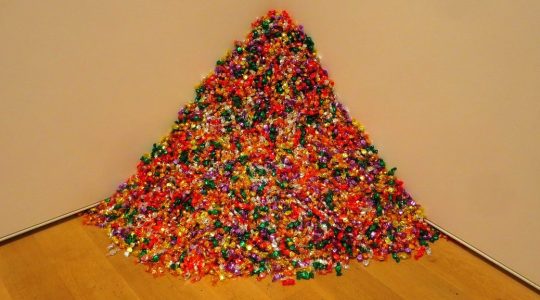
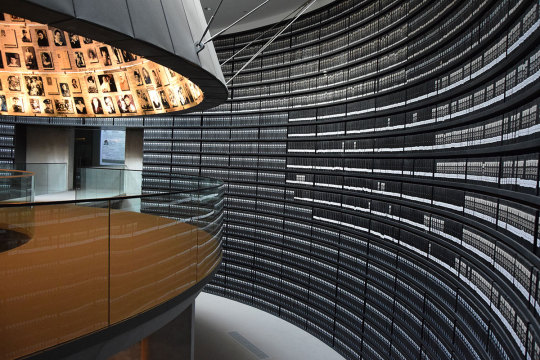

Disappearance as Presence
Fábula y Rueda de los Tres Amigos - Federico García Lorca // Nineteen Seventy Three - Sebastián Picker // Don't Think I've Forgotten: Cambodia's Lost Rock and Roll - dir. John Pirozzi // Untitled (Portrait of Ross in LA) - Félix González-Torres // Hall of Names - Yad Vashem
#web weaving#web weave#disappearance#absence#genocide#Sinn Sisamouth#federico garcía lorca#Yad Vashem#AIDS crisis#art#remembrance#memory culture#macks musings#Sebastián Picker#don't think I've forgotten#khmer rouge#spanish civil war#Cambodian Civil War#Pinochet#Chile#Félix González-Torres
185 notes
·
View notes
Text
Studying an abandoned factory in Cocentaina (Valencian Country) as part of a study on archaeology of the Industrial Revolution, the local study group has discovered a wall painting dating from the Spanish Civil War (1936-1939):
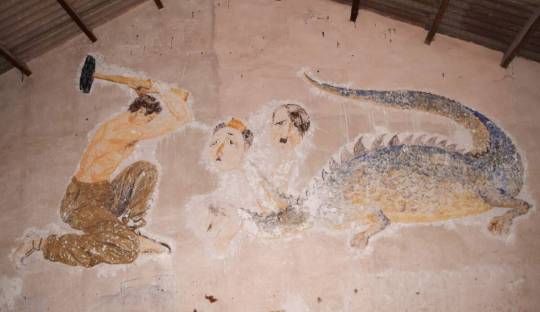
It shows a shirtless worker about to hit a three-headed dragon with a hammer. The three heads of the dragon are Franco, Hitler and Mussolini.
This painting, which was hidden behind a layer of lime, was made by the soldiers stationed in the factory. They were the 6th Rearguard Battalion, who were from Alacant (Valencian Country).
Source: Lletraferit.
#país valencià#història#art#cocentaina#archaeology#spanish civil war#guerra civil#valencian country#antifascism#antifascist#history#1930s#20th century history#20th century#antifa
180 notes
·
View notes
Photo
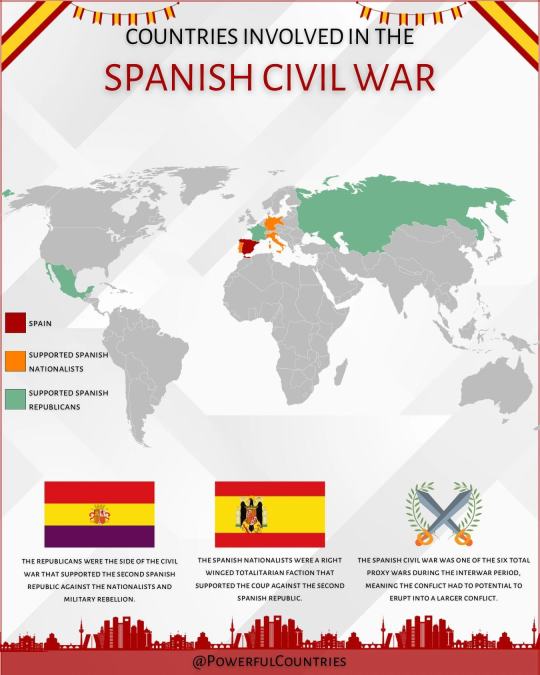
Countries involved in the Spanish Civil War (1936-39).
by powerfulcountries
184 notes
·
View notes
Text









¡Ay, Carmela! (Carlos Saura, 1990)
#Films watched in 2025#Ay Carmela#¡Ay Carmela!#Carlos Saura#Saura#Andrés Pajares#Andres Pajares#Carmen Maura#Gabino Diego#1990#spain#cinco#comedy#war#spanish civil war#theatre#alcohol#dramedy
78 notes
·
View notes
Text

Anti-Fascism Poster, 1936 (Catalonia)
Translation: Let's crush fascism
113 notes
·
View notes
Text
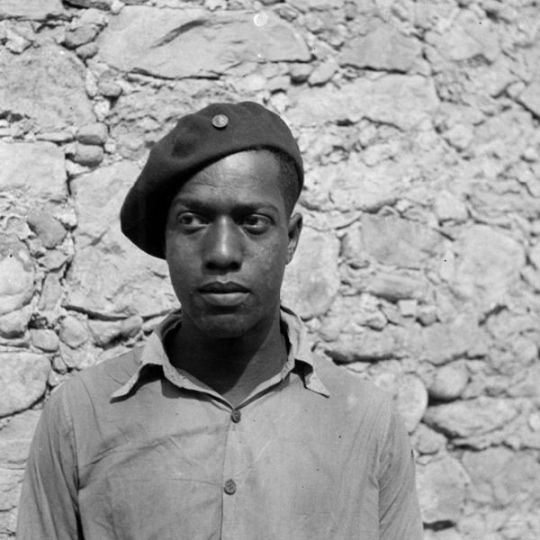
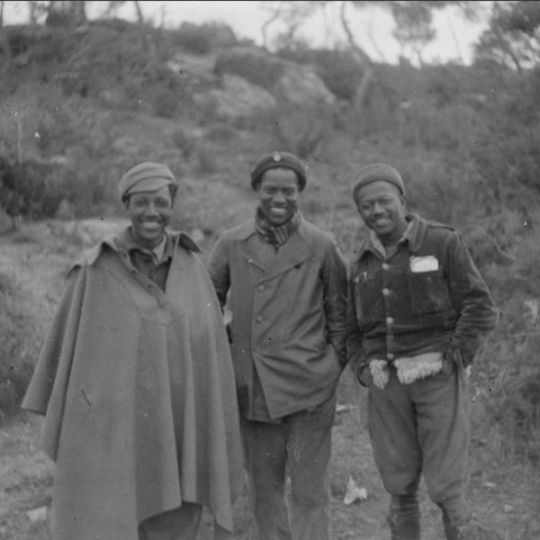
Happy 115th birthday to #originalantifa Thomas Page! Born in New York in 1909, Page fought with the Abraham Lincoln Brigade against the fascists during the Spanish Civil War from 1937 until he was wounded about a year later, then fought against the fascists again in WWII. Page was interviewed about his experiences years later in the documentary The Good Fight.
143 notes
·
View notes
Text
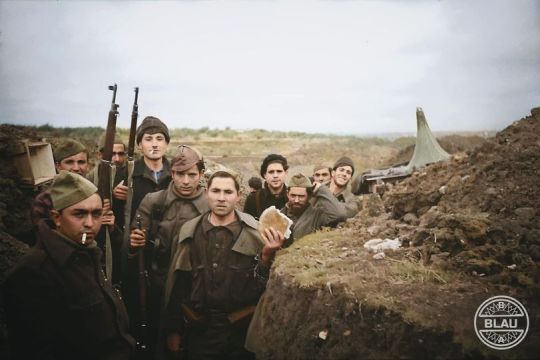
A group of Republican militiamen posing in a trench somewhere on the Madrid front. Possibly taken in late 1936 or early 1937.
182 notes
·
View notes
Text
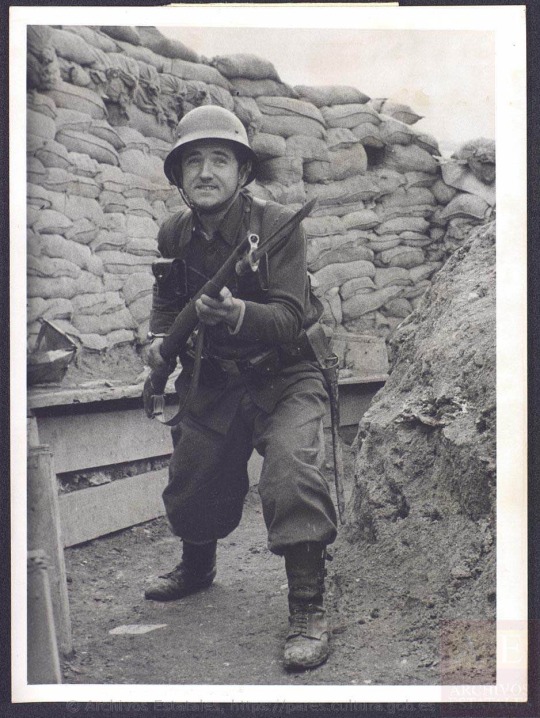
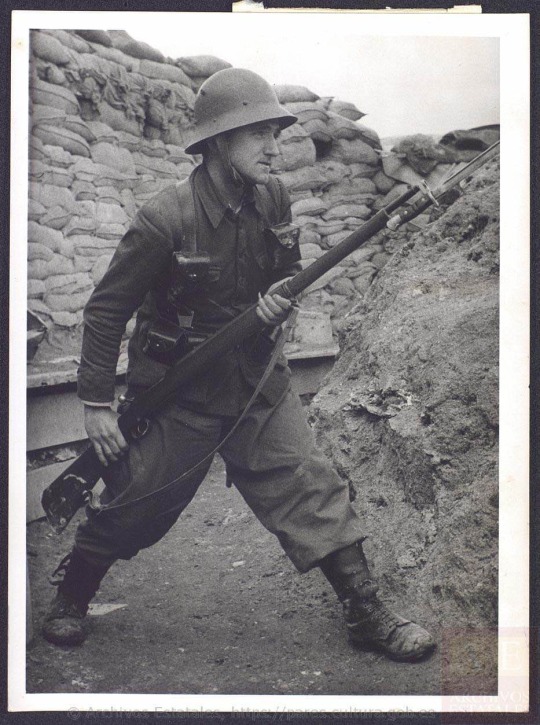
A Republican soldier poses with the eclectic collection of equipment that would become emblematic of the Spanish civil war. Location and date unknown, however an educated guess would be defensive positions around Madrid sometime in early-mid 1937.
61 notes
·
View notes
Text
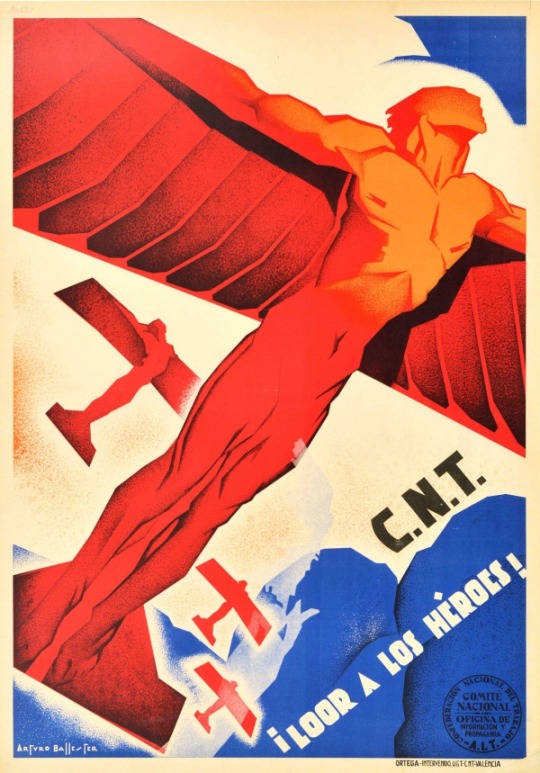
'C.N.T. - hail to the heroes!'
Poster issued by the Confederación Nacional del Trabajo during the Spanish Civil War (c. 1930). Artwork by Arturo Ballester.
#vintage poster#1930s#spain#spanish#Arturo Ballester#Confederación Nacional del Trabajo#spanish civil war#propaganda#airplane#aeroplane#art deco#hero#heroes
136 notes
·
View notes
Text
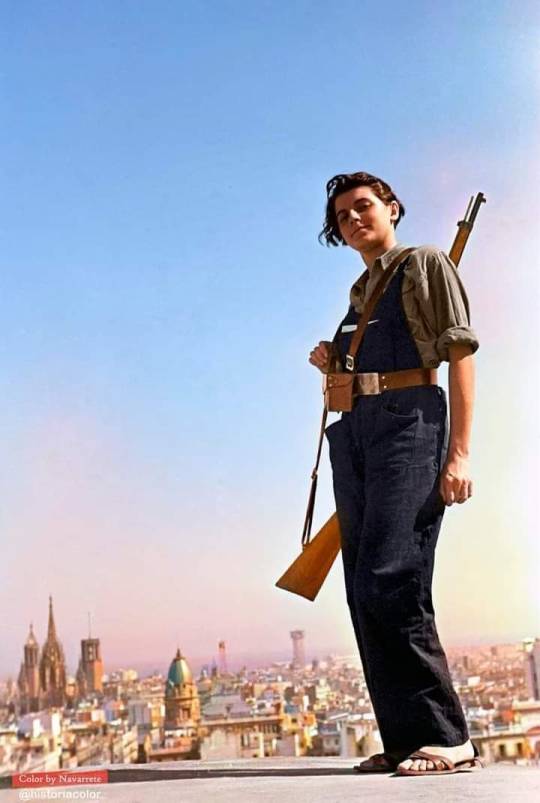
July 21, 1936. On the terrace of the old Hotel Colón, in Barcelona. Marina Ginesta (17) poses for photographer Hans Gutmann.
Font: La Guerra Civil Española en Color
104 notes
·
View notes
Text
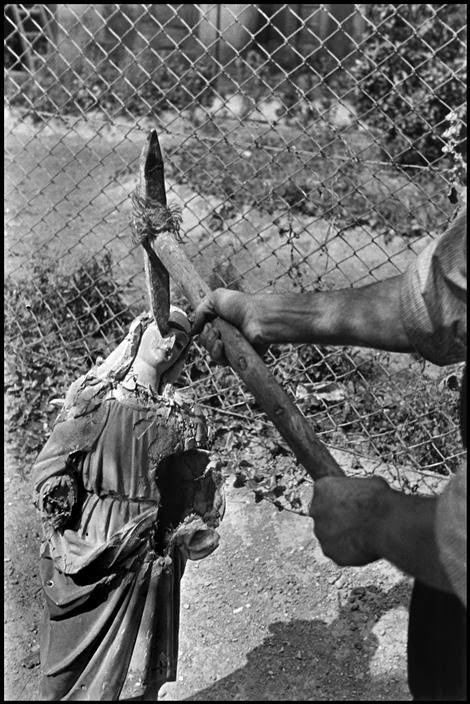
During the Spanish revolution and the ensuing civil war, Spanish workers and peasants engaged in anti-clerical violence against the Church that spent centuries raping, molesting, murdering, beating, abusing, and oppressing them.
#communism#socialism#marxism#leftism#leftist#communist#marxist#socialist#anti capitalism#dismantle capitalism#religion is a scam#religion#catholic#catholicism#catholic church#spain#spanish civil war#spanish revolution#anticlericalism#anti clericalism#atheist#atheism#anti theist#anti theism#antitheist#antitheism#peasant#peasants#marx#karl marx
115 notes
·
View notes
Text

SPANISH REPUBLICANS.
Women of the Republican militia, Madrid 1936. The Spanish Civil War served to break down many of the traditional gender roles on the Republican side. For one thing, it allowed women to fight openly on the battlefield at the start of the civil war, something very rare in 20th century warfare.
Here is an excerpt from Frances Lannon's article, Women and Images of Women in the Spanish Civil War: In both Madrid and Barcelona, in the early days of the war, some young women rushed along with men to the direct defence of the Republic against the military uprising of the city's garrisons. Some took part in the assault on the Cuartel de Montaña in Madrid and Atarazanas in Barcelona. They joined search parties to stop people in the streets, wandered around waving their rifles with male companions in requisitioned trucks, and went off to help stop the enemy's advance in the Guadarrama hills north of Madrid and elsewhere. places, in many cases at the cost of their lives. Color de Julio
REPUBLICANAS ESPAÑOLAS.
Mujeres de la milicia republicana, Madrid 1936. La Guerra Civil española sirvió para romper muchos de los roles de género tradicionales del lado republicano. Por un lado, permitió a las mujeres luchar abiertamente en el campo de batalla al comienzo de la guerra civil, algo muy raro en la guerra del siglo XX. He aquí un extracto del artículo de Frances Lannon, Mujeres e imágenes de mujeres en la Guerra Civil Española: Tanto en Madrid como en Barcelona, en los primeros días de la guerra, algunos jóvenes se apresuraron junto con los hombres a la defensa directa de la República frente al levantamiento militar de las guarniciones de la ciudad. Alguna participación en el asalto al Cuartel de Montaña en Madrid y Atarazanas en Barcelona. Se unieron a los grupos de búsqueda para detener a la gente en las calles, deambularon agitando sus rifles con compañeros masculinos en camiones requisados y se fueron para ayudar a detener el avance del enemigo en los cerros de Guadarrama al norte de Madrid y otros. lugares, en muchos casos a costa de sus vidas. Color de Julio
#SPANISH REPUBLICANS#REPUBLICANAS ESPAÑOLAS#Mujeres de la milicia republicana#spanish republic#spanish civil war
20 notes
·
View notes
Text
I remember exactly what my thoughts were when I first learned what had happened to my great-grandfathers. I used to talk to one of them —the survivor, who lived in Venezuela— on the phone when I was a kid, so I had always known he had had to "leave after the war" (Spanish Civil War), in a very vague sense. When I was in primary school, another class of the last year was studying the Second World War and my mother volunteered to share the letters we still keep that my (other) great-grandfather had sent from the refugee camp and from the front. So I guess it's just normal that at that point they also shared the "secret" with me. Like hundreds of thousands more, and like at least one person in most families in Catalonia, they fought during the war but feared what came after even more than the suffering of war itself. When the fascists won the war in 1939, they crossed the Pyrenee mountains by foot to cross the border with France (they cross into Northern Catalonia, the little bit of Catalonia that was annexed by France centuries ago) and escape the persecution that was mass-murdering antifascists. But when they crossed the border with France, the French authorities locked them in the refugee camps on the beach (my great-grandfathers were in Argelers beach camp), where they had barely any food or drink, no houses besides little tents they made themselves out of reels they could find on the beach, and very little clothes for the winter. Many people died of cold and hunger, particularly the children. When children were born, the mothers buried them under the sand because it was the only way they could think to keep them a bit warm. The humid sand of the beach.
And as I was hearing all of this, my only thought was: how did people let this happen? Why did the French government lock them to make them suffer like this? Why did the guards steal from them and mistreat them the way they did? Why did the people who lived near not give them food or jackets?
And to be fair, many people helped in some way. That's why the Swiss nurse Elizabeth Eidenbenz is a national hero for us Catalans. One of my great-grandfathers managed to escape the camp by being given work by a local man. However, a new war started in Europe (WW2) and the Nazis seemed to be coming near, and Franco (the fascist dictator of Spain) had given orders to the Nazis that any person who had gone on exile from Spain was stateless and could be killed (stateless: the blue triangle in concentration camp prisoners' clothes). My great-grandfather found a way to get to a ship to Venezuela and Mexico —thanks to the open borders of these two countries, thousands of people were saved and started a new life in safety. My other great-grandfather, however, used the only other way to escape the camps: when WW2 came, he enlisted in the foreign legion of the French army to continue the work of fighting fascism. His legion was eventually captured, his friend he had enlisted with was taken to a castle where the Nazis used him for experimenting, and my great-grandfather was taken to Mauthausen concentration camp and later killed in a gas chamber in Gusen camp at the very end of the war. And still, growing up I always heard that we are a lucky family, because at least we know what happened to him. Hundreds of thousands of people are still missing, buried in mass graves. The state of Spain (including Catalonia) is the 2nd country in the world with the highest amount of unfound people, after Cambodia, because of all the massacres of the fascists and the bodies under roadside ditches.
And for all these years I have always had in my mind: how could people do that? And how could people see it and allow it?
Now, we are all like the people of France with a choice of helping or letting it happen. The internet connects the world and we are all witnessing how Israel is committing genocide on the Palestinian people. After having turned Gaza in an open-air concentration camp for decades, now they have decided to completely wipe out its people, homes, cultural heritage, schools, hospitals, universities, shops, streets, sewage system— everything. And just like the people back then, we have the opportunity to help Palestinian people survive.
We cannot save our relatives, but we can do what we wished someone had done for them. If you would have wanted help for your family, if you would have helped mine, please if you can make a donation for Palestinian people.
Here's a list of Palestinian people who are raising funds to escape. Israel has made it impossible for Palestinians to leave the heavily-bombed Gaza strip except for the Rafah crossing (to Egypt); and then Israel went and destroyed the Rafah crossing, too. But the Rafah crossing opens every so often and the people with an Egyptian travel agency permission can cross. To get the permission, they must pay 5000$ each person over 16 years old and 2500$ each child under 16, and this doesn't cover transport nor living expenses. You can collaborate to saving a family by donating to their GoFundMe campaigns. Every donation can make a difference. Click each person's name to go to their GFM page, where you'll find more details of their story.
Yahya Ahmad: 20-year-old Pharmacy student from Gaza wants to evacuate his family including his sick father and young brother, after their house was destroyed and they lost everything. (Verification link) @yahyaahmed5
Mahmoud Khalaf: a PhD student from Gaza in Ireland asks our help to raise funds to get his family out of Gaza. (Verification link: number 151) @mahmoudkhalafff
Muhammad Shehab: Israeli bombs destroyed their home and killed relatives and friends, his family has already been displaced 9 times. They want to escape Gaza and apply to become asylum seekers anywhere possible. (Verification link) @mohammedshehab2
Mahmoud AlBalawi: this family needs help to evacuate for the safety of all and particularly the children who suffer of malnutrition. (Verification link) @elbalawi
Palestine Jad Al-Haq: Palestine gave birth during the war but there aren't medicines nor needed materials to raise a healthy child, her mother is also ill and everyone risks illness as a result of the situation created by Israel (destroying the sewage system, not allowing food and medicine, bombing the hospitals, etc). The whole family wants to escape. (Verification link) @falestine-yousef
Fadi Ayyad: 18-year-old whose family's home has been destroyed, he's taking care of his family including younger relatives. They are very close to reaching their goal!! (Verification link) @aymanayyad82
Abdelrahman: 22-year-old Abdelrahman and his mother. They lost their home and Abdelrahman lost his school where he was studying. They are also quite close to reaching their goal. (Verification link) @anqar
Aziz Zaqout: Heba is a pregnant mother of five, faced a health crisis that took her to seek treatment outside Gaza right before the war started. She was separated from her 1-year-old baby and the rest of her children, leaving them in the care of their father, your donation can help them reunite and save the children and father. (Verification link) @azizzaqout
Abd Alhadi Aburass: the war destroyed his home and advocacy bureau, needs money to save his family and provide healthcare for his children. (Verification link) @abdalhadiaburas
Aya Alanqar: for Aya, her husband and their three children (2, 5 and 7 years old), displaced 13 times after their home was destroyed. (Verification link) @ayaanqarsblog
The children Kareem and Carmen: Yousef Hussein is raising money for his nephews Kareem and Carmen after their family of 8, including their mother, were killed when their house was bombed. They are displaced in a refugee camp with other relatives, they want to evacuate and join their uncle Yousef in the USA. (Verification link) @adham-89
Samer Aburass: Samer, his wife and their 3 children lost their home and businesses, and their children (particularly the youngest one, 1 and a half year old) suffer malnutrition. They want to evacuate for a safe future. (Verification link: number 196) @samerpal
Also consider donating to the Municipality of Gaza's fundraiser to fix the water and sewage system: Gaza Water Project.
These are only a few people, who had contacted me on this blog or on my main blog (with less followers, so it's better to post here), but there are many more. You can also check this spreadsheet of verified fundraisers like this one, follow the Palestinian blogger @90-ghost who verifies fundraisers, or use the site gazafunds.com (every visit shows a different verified fundraiser).
Visca els pobles i visca Palestina lliure 🇵🇸🕊️
#other countries#palestina#palestine#gaza#palestine fundraisers#verified fundraisers#history#spanish civil war#ww2#european history#actualitat
109 notes
·
View notes
Photo

The Spanish Civil War in Early 1937
by MackinSauce/reddit
90 notes
·
View notes